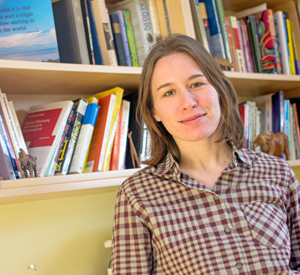
Whether you’re in your first year or your final year, completing assignments, writing final papers, and preparing to write exams can be stressful.
Here’s what some of your exceptional professors have to say about getting through this exams season successfully.
Dr. Carey Watt, History, on writing essays
“Use a separate outline document to plan your essay: your topics, arguments, and evidence, including sample sentences or paragraphs. Keep both your outline and essay documents open on your desktop. The outline allows you to try out different ideas without the stress of staring at a flashing cursor while worrying “this is the essay that I will hand in.” It frees up your creativity and gets you writing.”
Dr. Angela Wisniewski, Science and Technology Studies, on studying for exams
“Find ways to pace yourself: Re-writing key pages from your notes, transcribing a passage that you like from an essay, or reading a chapter out loud to a friend are all good ways to slow it down and remove some of that feeling of pressure while still spending time with the material. Slowing things down is a great way to be kind to yourself!”
Dr. Shaun Narine, Political Science, on completing assignments
“The most important part of completing any long project is to break it into small, digestible pieces. Any task can be accomplished so long as you make it manageable. However, completion also requires discipline. When I am doing a long, tedious task (like marking a huge pile of papers!) I break it up by giving myself a certain number to complete, then reward myself with a small break—maybe watching videos on YouTube or doing some exercise. Then it is back to the grind.
Accomplishing things is rewarding in itself. At some point, you find yourself wanting to do things in order to get that sense of accomplishment that comes with completing a task.”
Dr. Matthew Dinan, Catholic Studies, on getting through exam season
“The best advice I have for students preparing for exams and final papers is to get enough sleep, eat well, and exercise. This is such good advice that I am actually going to follow it myself during exams.”
Dr. Michelle Lafrance, Psychology, on staying focused and productive
Avoid being around people who are catastrophizing and engaging in ‘panic talk.’ Also, avoid being one of these people! Study in manageable ‘chunks’ of time—take small and regular breaks
Also, ensure that you are studying when you are studying. Study in a quiet space that has no distractions. Put your devices away to help yourself concentrate.
-(2).jpg)
/filters:format(webp)/prod01/stuca/media/stu/site-assets/images/features/DalCupnews.jpg)
/filters:format(webp)/prod01/stuca/media/stu/site-content/news/DeansListnews.jpg)
/filters:format(webp)/prod01/stuca/media/stu/site-assets/images/features/Internship-Lauren-Feature.jpg)